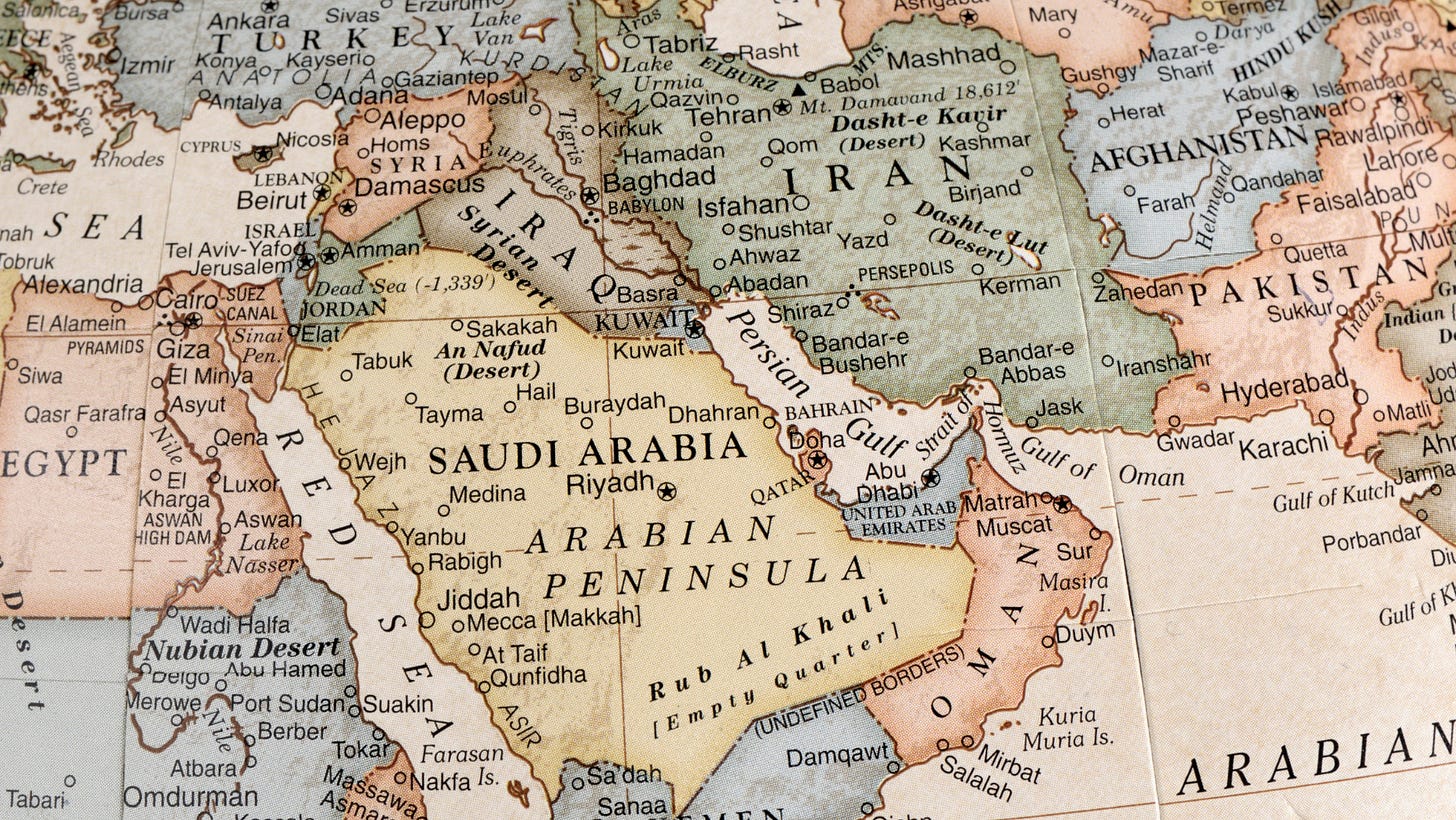What the Middle East Gets Wrong About Freedom of Speech
The opinions of a free country’s citizenry don’t always (or even often) reflect those of the government, and that’s the entire point.
Today, I find myself living in downtown Portland, Oregon. I’ve often joked that I’ve lived through the Iraq War, Al Qaeda, and ISIS, yet, downtown Portland is a bit more terrifying. Portland is a unique city of beer, coffee, incredible nature, and blue-haired people (purely based on personal speculation.) But what makes the city even more remarkable is the coexistence of two opposing groups: Antifa and the Proud Boys.
To make a long story short, Antifa is on the far left, and the Proud Boys are on the far right. Neither group seems particularly open to dialogue, and neither group seems like they would be fun to invite to parties. Yet, each of these groups is allowed to exercise their first amendment right to assemble and protest to their heart's content, as long as it’s peaceful.
In any number of American cities, you might witness a parade of the LGBTQ+ community or a neo-nazi march on the same day. Free speech does not discriminate. This does not mean that either one of these movements is endorsed by the government; that is not a function of the government. The government’s role is to protect the right of the people to express themselves freely.
In the Middle East, many people are frustrated with some of the anti-muslim, pro-LGBTQ+, or pro-democracy rhetoric from the West. They believe that Western governments endorse these narratives to undermine Islam or Middle Eastern culture. Take the recent example of Salwan Momika, an Iraqi immigrant who publicly burned the Quran in Sweden. The backlash was staggering, and Sweden was heavily scrutinized for allowing the burning to happen.
Yet, no Swedish law prohibits the burning of any sacred religious text, including the Torah, the Bible, and the Quran. The Swedish government did not single out the Quran; it just happened to be the sacred book of choice by Salwan Momika. I personally disagree with this act. To quote my colleague, Faisal Al Mutar, “Destroying things is easy. Building them, however, is hard.” No matter how misguided I believe Momika’s actions were, this act is and should remain legal. No matter how unwise or offensive I may believe the burning of the Quran to be, I prefer to live in a society that allows its people to freely express even their worst opinions, so long as it doesn’t incite violence. In our current world, it’s worth repeating: the actions of one do not represent a whole country.
A culture of suppression and censorship has been cultivated in the Middle East for decades. Socialist Arab parties have heavily dominated the region on one side and oil-rich monarchies on the other. Neither side has allowed for free speech or government criticism. Speaking up could mean prison time, torture, or even death for you and your loved ones. It’s no wonder that free speech can be misunderstood or frowned upon in the Middle East. When someone in Iran hears that people are burning the Quran in Sweden, they assume the act must be government sanctioned.
Nothing of the sort would be allowed to occur in Iran without the express support of its government. The consequences for defying government messaging would be swift and brutal. In countries like Iran, there are censors at the ministries of information that examine every movie and book being published within their country’s borders. One can assume that anything being printed in an Iranian newspaper has been expressly approved and endorsed by Islamic Republic officials. When Iranians observe the burning of the Quran in Sweden, they have good reason to assume that the Swedish government approves of this behavior. It’s hard to imagine having freedom of expression when you have never experienced it.
The reason why freedom of expression matters in the Middle East is because the principle directly challenges decades of religious statism, socialism, and authoritarianism. Every book translated, every article published, and every act in the pursuit of freedom we take will transform the region. The Middle East is responding; Saudi Arabia is loosening their laws, Iranian women’s demands are louder than ever, and the Afghan people continue the fight against authoritarianism using social media. Achieving freedom of speech in the Middle East will not be a walk in the park; the other side will be fighting back, and they don't fight fair. More often than not, our words and articles are met with stabbings and bullets. That's precisely what makes the work of organizations like Ideas Beyond Borders important. The more people in the Middle East understand the benefits of freedom of speech, the more they will desire and pursue it.




Well said, Abdo. And that's why i think IBB is doing such important work.